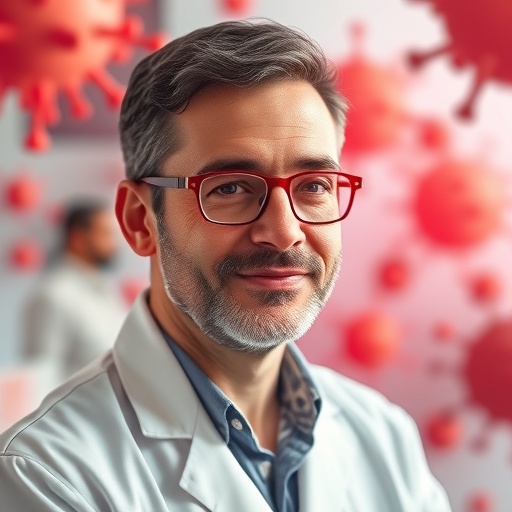In a groundbreaking development, researchers from the University of Cambridge, leveraging the power of advanced artificial intelligence, have pioneered a novel approach to drug discovery aimed at combating cancer. By collaborating with an ‘AI scientist’—specifically, the sophisticated GPT-4 large language model—the research team has unlocked new potential in the realm of combining existing, cost-effective drugs typically used for other indications, such as high cholesterol and alcohol dependence, to identify new cancer-fighting solutions.
This research initiative centers on the identification of previously overlooked drug combinations that could exhibit therapeutic efficacy against breast cancer, a disease that continues to challenge medical professionals despite advancements in treatment options. Utilizing GPT-4’s capacity for parsing vast quantities of scientific literature, the research team aimed to expose hidden patterns that might suggest promising new avenues for cancer treatment. Previous efforts at drug discovery often used AI primarily for data analysis; however, this project represents a paradigm shift, integrating experimental validation into the AI’s learning process in real-time.
When tasked to explore possible drug combinations, the researchers specifically instructed GPT-4 to prioritize drugs that had already received regulatory approval and to actively avoid traditional chemotherapy agents. This targeted approach aimed to identify compounds that would selectively target cancer cells, sparing healthy cells from the often devastating side effects associated with conventional cancer treatments. By doing so, the researchers hoped to not only achieve better therapeutic outcomes but also to ensure that these new combinations would still be accessible and affordable for patients.
.adsslot_AC3UctjErQ{ width:728px !important; height:90px !important; }
@media (max-width:1199px) { .adsslot_AC3UctjErQ{ width:468px !important; height:60px !important; } }
@media (max-width:767px) { .adsslot_AC3UctjErQ{ width:320px !important; height:50px !important; } }
ADVERTISEMENT
The initial phase of their experimental approach involved testing twelve different drug combinations suggested by GPT-4. In an exhilarating breakthrough, three of those combinations significantly outperformed established breast cancer therapies. This initial success spurred the AI to further refine its hypotheses, leading to an additional four drug combinations recommended for testing. Remarkably, three of these new combinations also demonstrated notable effectiveness against breast cancer cells.
These findings were meticulously documented in the ‘Journal of the Royal Society Interface,’ marking a historic moment in AI-assisted research where the traditional model of hypothesis generation is transformed into a dynamic, closed-loop system. This system allows for feedback from experimental results to guide AI algorithm adjustments, thus enabling an ongoing dialogue between machine output and human interpretation. The researchers clearly delineate that the aim of employing LLMs such as GPT-4 is not to replace human scientists but rather to enhance their capabilities. By acting as a highly knowledgeable research partner, AI can lead to accelerated discoveries that would be far more time-consuming if tackled solely by human researchers.
One of the more intriguing aspects of this research is the concept of AI ‘hallucinations’, where the model might propose combinations that lack a traditional evidential basis. Within the context of scientific exploration, these unexpected suggestions are not viewed strictly as flaws; instead, they can serve as springboards for novel ideas that may be worth investigating. During his commentary on the findings, Professor Ross King of the University of Cambridge emphasized the value of supervised LLMs in facilitating a more expansive view of potential scientific avenues, enabling researchers to explore diverse hypotheses that might be beyond conventional thinking.
Dr. Hector Zenil, a co-author of the paper, reaffirmed this collective spirit of inquiry. He highlighted the transformative nature of the collaboration, stating that guided by the prompts from human scientists and experimental validation, GPT-4 operated like a relentless research partner. Its ability to traverse a vast hypothesis space and propose innovative concepts not only enhances the drug development process but also illustrates how human ingenuity and AI can converge to push the boundaries of scientific exploration.
Among the combinations identified, simvastatin, a cholesterol-lowering drug, paired with disulfiram, typically used in treating alcohol dependence, emerged as particularly promising against breast cancer cells. Such findings open the door to a wholly novel concept known as therapeutic repurposing, wherein existing medications are redeployed for entirely different medical uses. While these combinations may not have been traditionally associated with oncological care, their potential merit further investigation through extensive clinical trials before any conclusions can be drawn regarding their effectiveness.
Through the continuous loop of hypothesis generation and experimental validation, the research team established an innovative model wherein AI can be seamlessly integrated into the scientific method. This adaptive framework allows for real-time modifications based on empirical data, thereby representing a significant leap forward in the domain of therapeutic research. With future advancements in supervised AI, we may find ourselves at the cusp of a new era that redefines our approach to research and discovery across various scientific fields.
Overall, this study elucidates the fertile ground that exists at the intersection of artificial intelligence and biomedicine. As these technologies evolve, the potential for revolutionary discoveries in areas stricken by persistent challenges becomes increasingly tangible. Such a synergistic relationship between man and machine presents an unprecedented opportunity to not only enhance our understanding of complex diseases like cancer but also to expedite the time-sensitive quest for effective treatments.
By fostering this collaboration between human intuition and artificial intelligence, the future of drug discovery could be transformed into a more efficient, imaginative, and productive process. The possibilities that emerge from this integration between traditional science and modern AI technologies are not only breath-taking but also indispensable in the fight against some of humanity’s most formidable health challenges.
Subject of Research:
Article Title: Scientific Hypothesis Generation by Large Language Models: Laboratory Validation in Breast Cancer Treatment
News Publication Date: 4-Jun-2025
Web References:
References:
Image Credits:
Keywords
Tags: advanced artificial intelligence in oncologyAI-driven drug discoverycombinatorial therapies for breast cancercost-effective cancer treatment solutionsexperimental validation in AI researchGPT-4 in medical researchinnovative approaches to cancer cell eliminationnon-cancer drug combinations for cancer treatmentparadigm shift in cancer researchregulatory approved drugs for cancer therapytargeted cancer therapies without chemotherapytherapeutic efficacy of overlooked drug combinations





